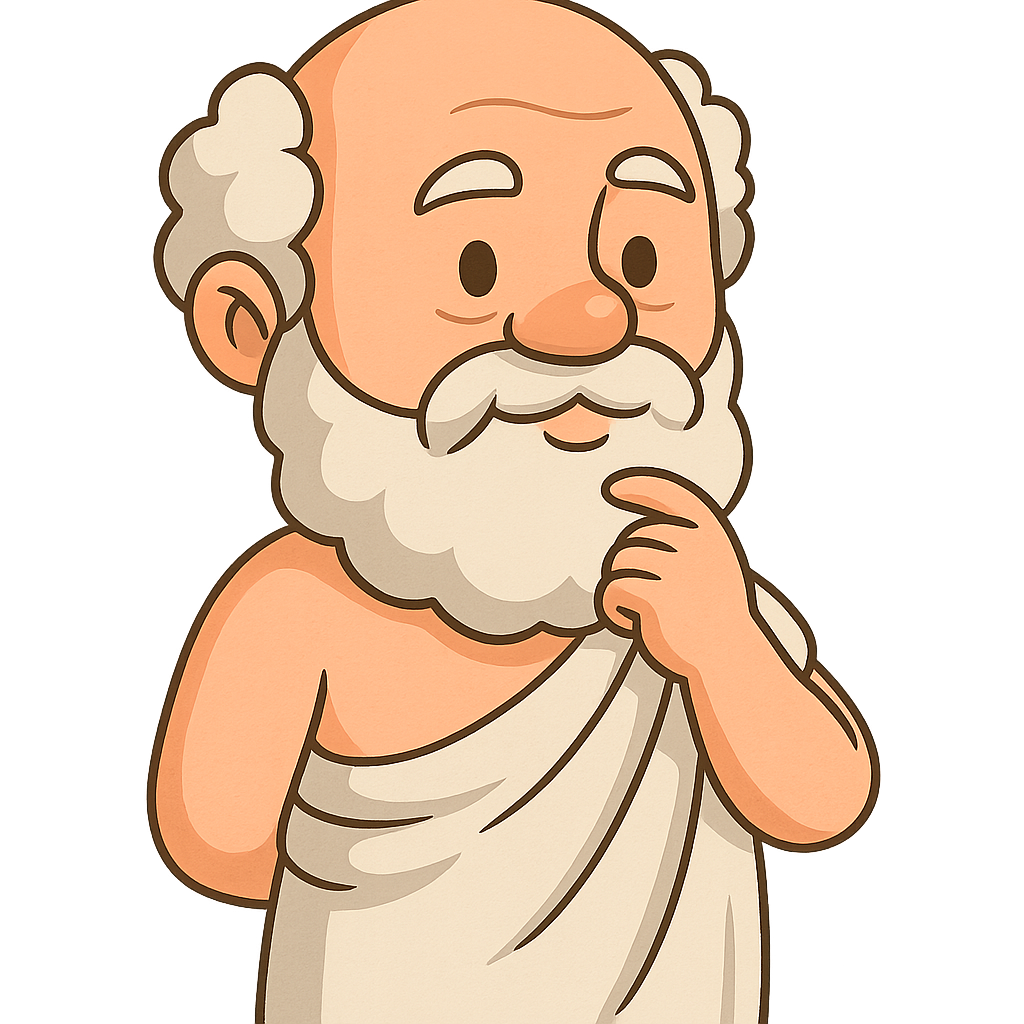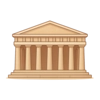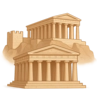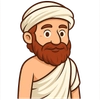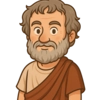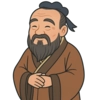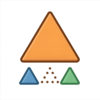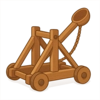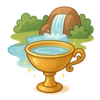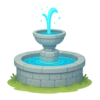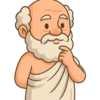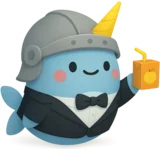Socrates: The Thinker of Athens
Hello there. My name is Socrates, and my story begins over two thousand years ago in a city shimmering with sunlight and new ideas: Athens. I was born in 470 BCE, a time when magnificent buildings like the Parthenon were rising on the hillsides. My father, Sophroniscus, was a stonemason, and he taught me how to use a hammer and chisel to carve life into blocks of marble. It was hard work, but I loved seeing a rough stone turn into something beautiful. My mother, Phaenarete, had a different job; she was a midwife, someone who helps babies be born. I always thought her job was amazing, bringing new life into the world. As I got older, I helped my father in his workshop, but my mind was always somewhere else. While my hands were chipping away at stone, my brain was chipping away at big questions. Why are we here? What does it mean to be a good friend? What is courage? While other boys played games, I would wander through the city, watching people and wondering what they were thinking. I realized that my passion wasn't for stone, but for ideas. I wanted to help people give birth to new thoughts, just like my mother helped bring new babies into the world.
As a man, I left the stonemason’s workshop behind and made the busiest place in the city my new home: the Agora. This was the marketplace, a bustling square filled with merchants shouting about their olives and figs, politicians giving speeches, and friends catching up on the news. I didn't have anything to sell, but I had something to share: questions. I would walk up to a general and ask, “Can you please tell me what true courage is?” Or I might ask a politician, “What does justice really mean?” I had a special way of talking to people. Instead of giving a long speech, I would ask a question. When they gave me an answer, I wouldn't say, “You’re right!” or “You’re wrong!” Instead, I would just ask another question, and then another. This way of thinking, which people later called the Socratic Method, helped people dig deep into their own minds to find the answers. Sometimes, my questions made people uncomfortable. I liked to compare myself to a gadfly, which is a small, buzzing insect that annoys a big, sleepy horse to make it wake up. I believed Athens was like that noble horse—strong and powerful, but a little bit lazy in its thinking. I was the gadfly, buzzing around and asking pesky questions to wake everyone up. I wanted to make them think! I never wrote any of my ideas down. I believed that real learning happened in conversations between people. Luckily for us, my best student, a brilliant young man named Plato, remembered everything I said and wrote it all down in books called dialogues. It is because of Plato that you know my story today.
Not everyone likes being woken up by a buzzing gadfly. After many years of my questioning, some of the powerful leaders in Athens grew angry with me. They didn't like that I challenged their ideas and encouraged the young people of the city to think for themselves. In the year 399 BCE, they put me on trial. They accused me of not respecting the city’s gods and of filling the minds of the youth with dangerous thoughts. I stood before a jury of 500 of my fellow Athenians and defended myself. I told them that all I ever did was search for wisdom and truth, and I would not stop, because “the unexamined life is not worth living.” This meant that a life spent without thinking about who you are and what you believe isn't a life truly lived. The jury found me guilty. My friends begged me to escape from prison, but I refused. I had lived my whole life under the laws of Athens, and I believed I had to respect their final decision, even if I felt it was wrong. My journey ended, but my last lesson was about standing up for what you believe in. My life taught the world that asking questions is one of the bravest things you can do, and your mind is the most powerful tool you will ever have.
Activities
Take a Quiz
Test what you learned with a fun quiz!
Get creative with colors!
Print a coloring book page of this topic.

